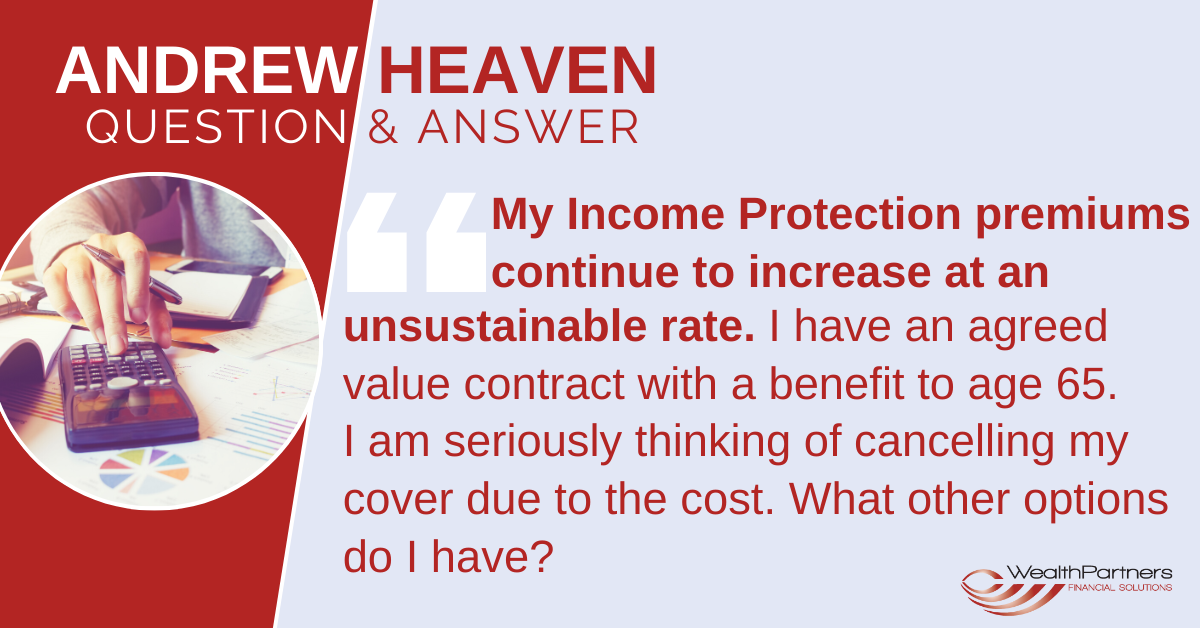Q: My Income Protection premiums continue to increase at an unsustainable rate. I have an agreed value contract with a benefit to age 65. I am seriously thinking of cancelling my cover due to the cost. What other options do I have?
A: Premiums for Income Protection cover have risen across the market based on the claims experience and capital management of the insurers. Based on claims experience alone, the individual disability income insurance (IDII) industry collectively lost more than $3.4 billion over the past five years. Australian Prudential Regulation Authority (APRA) has acted announcing a number of important changes to new applications for Income Protection policies that came into effect from 1 April 2020.
APRA requires the IDII industry to cease offering agreed value Income Protection policies from 1 April 2020. An agreed value income protection policy is an insurance contract where the insured amount is based on what the individual’s income was when they applied for the policy, as opposed to what it was when they made the claim.
From 1 April 2020, new income protection policies will be written on an indemnity basis. This means monthly benefits are linked to income earned over the 12 months up to the time of the claim. This means that if you change to a lesser-paying job, or your income falls, you can only claim based on income earned in the previous 12-month period.
This could also see those that experience a temporary downturn in their income over the 12 months (e.g. economic downturn, redundancy, unpaid leave or maternity leave) receive a significantly lower payout.
The maximum income protection benefit will also be capped to 75% of earnings.
A new maximum monthly benefit payment will be limited to $30,000 per month, even if this is less than 75% of what the individual was earning at the time of making the claim.
Benefit periods will be limited to 5 years as opposed to the previous option of benefits to age 65-70 or in some cases lifetime.
Whilst these changes are applicable to new policies, those with existing income protection policies may continue to be insured under their current policy terms.
I would encourage you to consider how important having an agreed value contract is to you. If your income is unlikely to vary in the future, then you may consider shopping around for an indemnity contract.
If your policy has a benefit through to age 65, consider the consequences of a benefit being limited to 5 years. How would you replace your income beyond the five-year period?
If you continue to value the features and benefits of your current policy and you are seeking to reduce the costs of your cover, consider increasing the waiting period on your policy or reducing the monthly benefit or the benefit period. Also remember that usually income protection premiums are tax deductible to the individual.
Undoubtedly these changes impact those seeking to take out new insurance. However, for those that have existing income protection in place, they face the perennial dilemma of trading off features and benefits of the existing policy versus rising costs.


